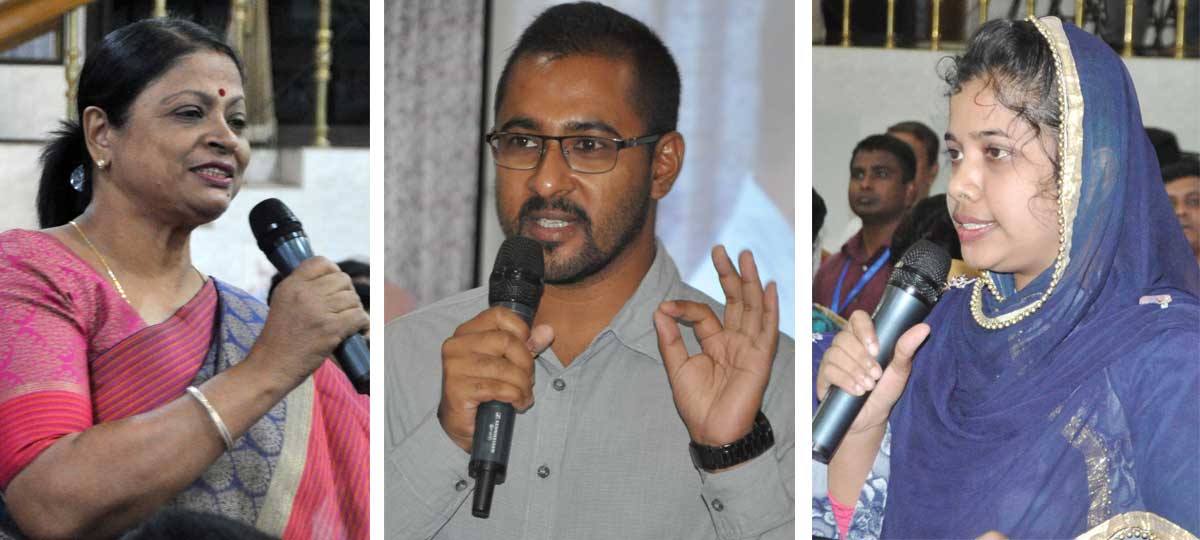
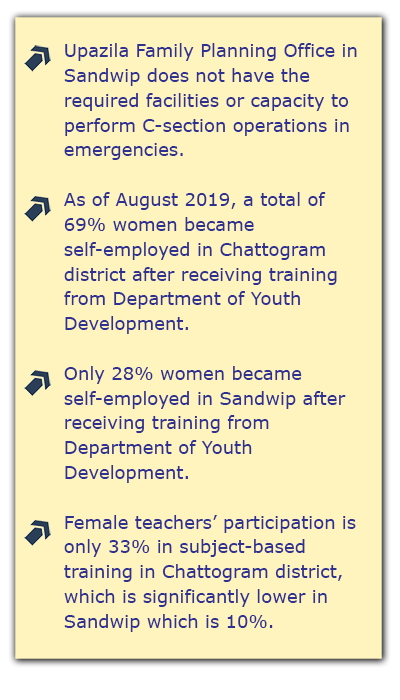
Ensuring women empowerment and gender equality is a must to realise the Sustainable Development Goals (SDGs). Women living in the disaster-prone and hard-to-reach coastal areas are being deprived of public services due to the lack of government capacity and various social barriers. According to a research, most of the women living in Sandwip upazila are not aware of the government hotline 109 to report about violence against women and children. Such public services need more publicity to raise awareness among the users to avail the services. Besides, to empower these women in disaster-prone and hard-to-reach areas socially and economically, targeted and specialised public services should be introduced as well as the effectiveness of the existing services should be increased.
These observations emerged from a dialogue in Chattogram titled “Gender Equality and Women Empowerment: The Role of Public Service Delivery” on Friday 13 September 2019. This event was organised jointly by Centre for Policy Dialogue (CPD) and Oxfam in Bangladesh, in association with Society for Development Initiatives (SDI), under an ongoing project titled ‘Enhancing the participation of community-based organizations (CBOs) and civil society organization (CSOs) in democratic governance in Bangladesh’, supported by the European Union.
Mr Towfiqul Islam Khan, Senior Research Fellow, CPD, made a keynote presentation at the dialogue. In his presentation, Mr Khan presented a comparatives scenario of Chattogram in terms of women empowerment and gender equality in the context of SDGs and various national policies.

He presented the challenges faced by the women living in coastal and hard-to-reach areas due to disasters and geographical difficulties. Mothers and children are being deprived of adequate medical services due to inadequate transportation system. In terms of access to education and skill development training services, women in hard-to-reach areas, like Sandwip, are lagging behind from receiving the full benefits due to lack of coordination among different government and non-government initiatives.
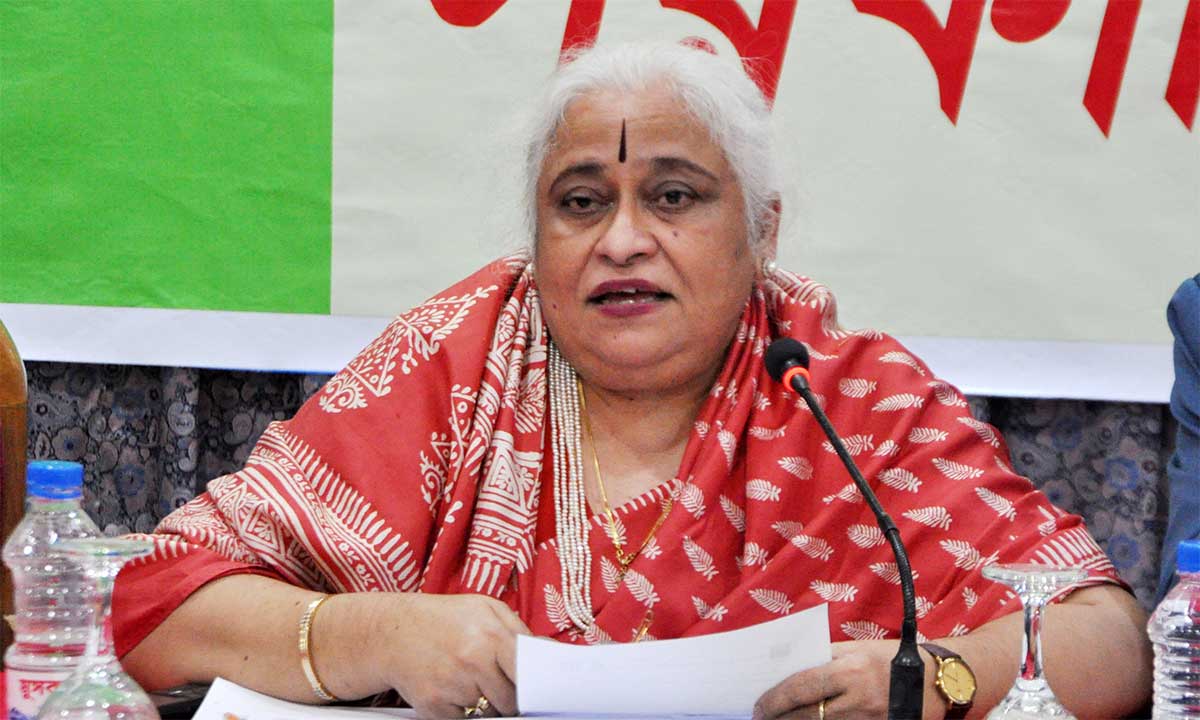
Ms Aroma Dutta, MP, as the special guest at this event, said that the government is committed to ensure women empowerment and gender equality across the country. Necessary government initiatives are being implemented accordingly. Women living in disaster-prone areas are more exposed to risks than men. The government will continue its efforts to ensure women empowerment through tacking these challenges. Special public services will be useful tools for the government to ensure women participation in employment and decision making process.
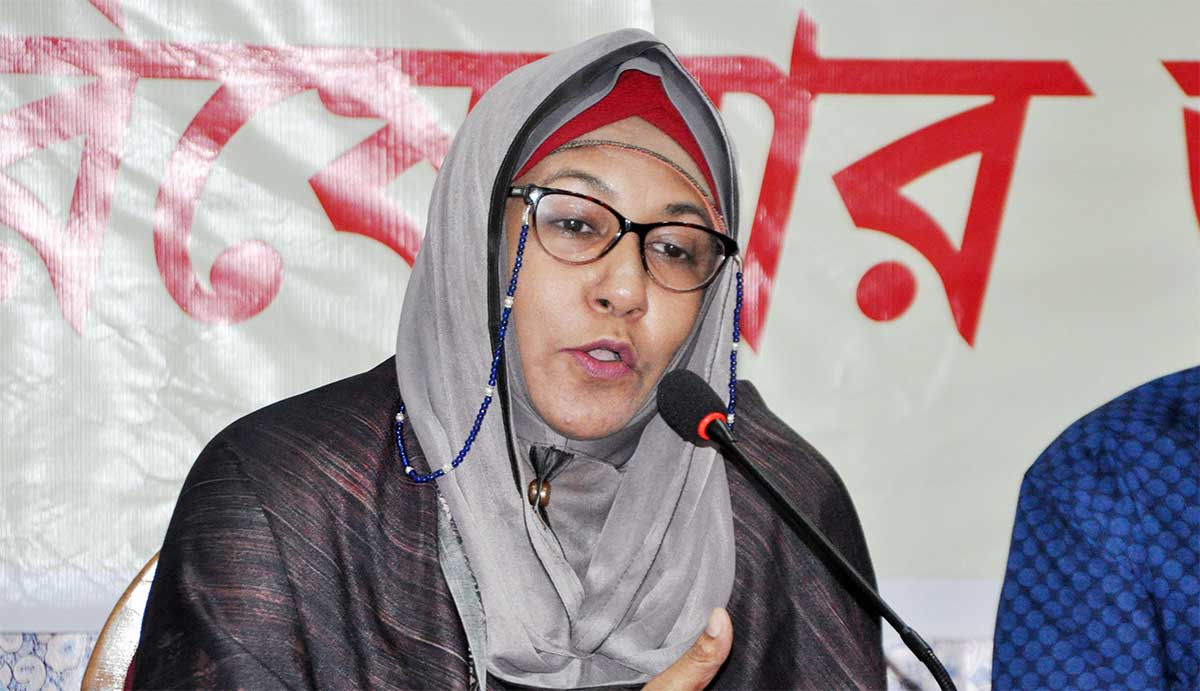
Ms Waseqa Ayesha Khan, MP, also spoke at this dialogue as the special guest. She mentioned that the government is working on developing effective strategies to prioritise the development of the people, including the women, living in hard-to-reach areas.
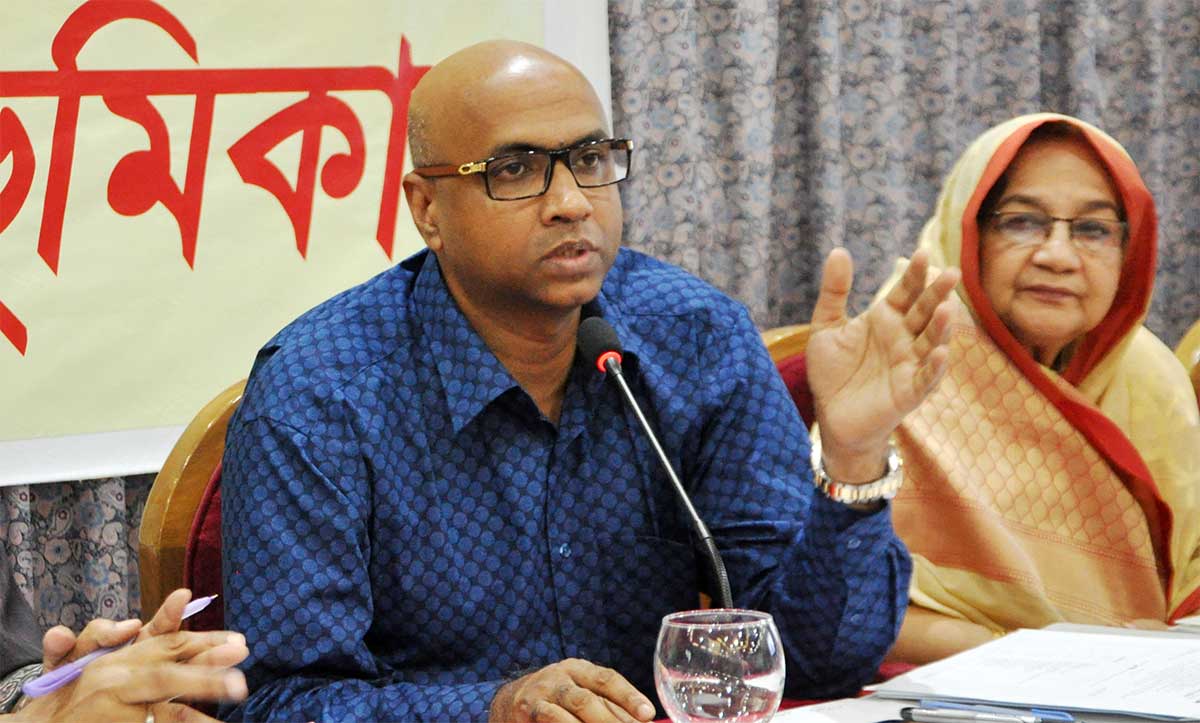
Mr Mohammad Elius Hossain, Deputy Commissioner and District Magistrate of Chattogram District, spoke at the event as Guest of Honour. He said the administration is very sincere to provide services to the communities living in the hard-to-reach areas. We have clear instructions to government officials to not to neglect any needs and demands from the people living in hard-to-reach and disaster-prone areas.

Dr Fahmida Khatun, Executive Director, CPD, presented a summary of the discussion at the end of the dialogue. She noted that it is a must to ensure inclusive women empowerment to achieve the SDGs. The opportunity should be widened for the women, from lagged behind communities, to be included in income-generating employment through proper education and skill development trainings. In this case, the social safety net programme of the government should be widened to effectively include the women from marginalised community especially in disaster-prone areas.

Professor Mustafizur Rahman, Distinguished Fellow, CPD, chaired the event. He mentioned that the government should formulate specific measures and projects considering the SDG indicators where Chattogram is lagging behind in view of ensuring women empowerment. These initiatives should be implemented in a coordinated way by the government in collaboration with non-government and community-based organisations.
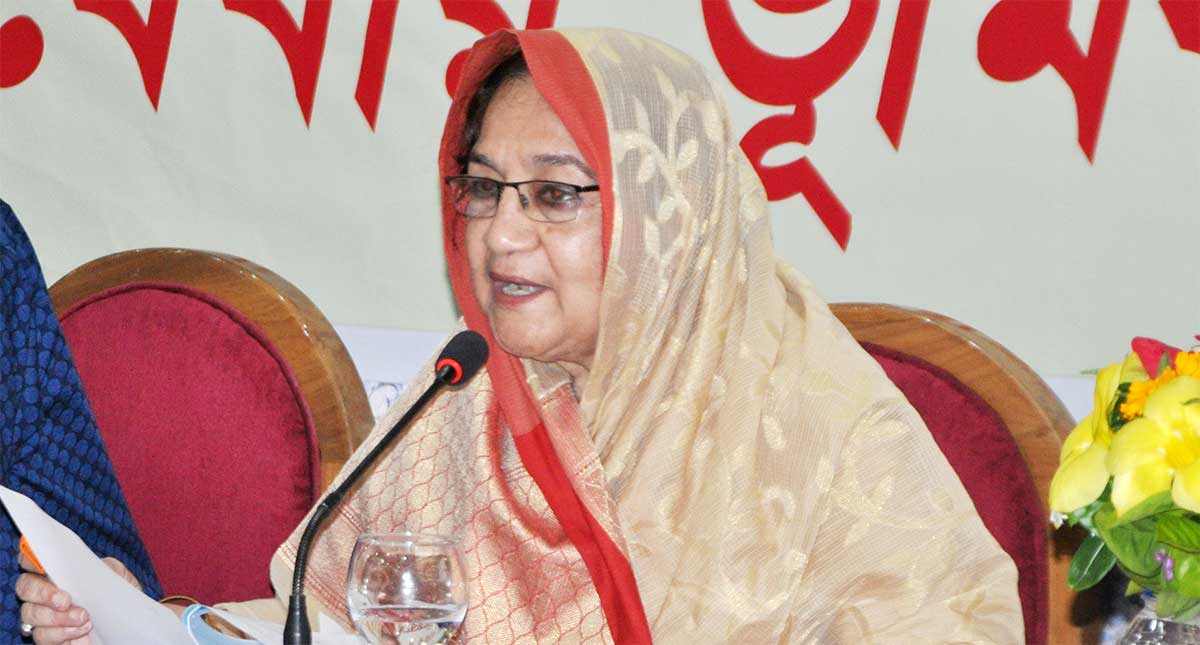
Ms Jasmeen Sultana Paru, Chief Executive, Ensure Legal Support through Local Movement & Action (ELLMA), and Dr Munal Mahbub, Senior Vice President, Chittagong Women Chamber of Commerce & Industry (CWCCI), were present at this event as discussants.
Mr Shamsul Haque, Executive Director, SDI, delivered welcome remarks and Mr S. M. Monjur Rashid, Policy, Advocacy, Campaign and Communications Manager, Oxfam in Bangladesh, delivered introductory remarks at this event.

The dialogue was attended by around one hundred and seventy participants including public representatives, business leaders, government officials, representatives from civil society organisations, academics, researchers, students and media among others.
